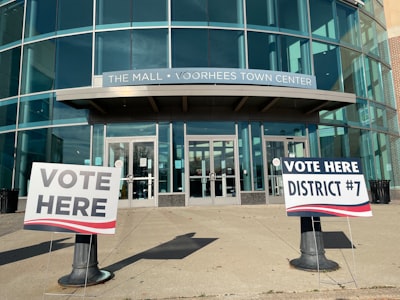Mayoral Race or Trump Referendum? NYC Candidates Turn Local Battles National
The closing arguments of New York City’s mayoral candidates reveal a striking reality: the mayoral race has morphed into a battleground for the soul of American democracy, measured not just by plans for policing or affordable housing—but by who is best prepared to confront the shadow of Donald Trump.
The New Metric: Anti-Trump Credentials
Rather than focus solely on the classic bread-and-butter city issues, candidates are compelled to articulate their strategy for “taking on Trump.” This shift signals just how deeply national politics, and specifically the Trump phenomenon, have permeated even races rooted in hyper-local concerns.
Why Is "Taking on Trump" So Central?
- Symbolic Leadership: Trump is viewed as a symbol of deeply divisive politics—a figure whose policies and style directly challenge New York’s self-image as diverse, tolerant, and global.
- Real Policy Threats: From sanctuary city status to federal funding battles, Trump-era federal decisions have directly affected New Yorkers. As such, local leaders are expected to demonstrate they can resist or reverse these impacts.
- Voter Motivation: With Trump remaining a mobilizing force for both his supporters and opponents, aligning against—or with—him is a shortcut to voter identity.
The Main Contenders: Contrasting Approaches
| Candidate | Approach to Trump | Key Argument | Pros | Cons |
|---|---|---|---|---|
| Establishment Democrat | Resistance, policy rollbacks | NYC needs a bulwark against “Trumpism” | Experience, mobilizes anti-Trump base | Can sound like a rehash of national Dem talking points |
| Progressives | Outflank Trump from the left | “Bold change” is the best rebuttal to divisive politics | Energy, youthful voters | May alienate moderates, clash with city’s pragmatic demands |
| Nontraditional/“Unity” Candidates | Focus on local not national | “Trump is a distraction—fix NYC first” | Appeals to voter fatigue over polarization | Risks being seen as avoiding big issues |
Key Players Explained:
- Eric Adams (Establishment Democrat): Seeks to position himself as a pragmatic leader who can resist Trump-style attacks on cities.
- Maya Wiley (Progressive): Argues that only a transformative agenda can truly counter the politics Trump represents.
- Curtis Sliwa (Republican): Leverages Trump’s base, framing the debate as law-and-order versus chaos.
The Bigger Picture: Local vs. National
This debate raises a broader dilemma: does focusing on Trump help or hurt the city? On one hand, it may unite resistance, clarify values, and signal to Washington that NYC won’t be cowed. On the other, it risks sidelining urgent city-specific crises in favor of headline-grabbing but ultimately distant battles.
Surprising Fact: In a recent poll, over 60% of likely NYC voters said a mayor’s attitude toward Trump would influence their vote—even ranking it above some local issues like bike lanes or business taxes.
The Stakes for New York—and Beyond
The elevation of Trump as a central campaign touchstone highlights how deeply the national mood has bled into municipal politics. New York’s next mayor will be watched—not only for their competence in running a city of eight million, but for their ability to channel or challenge the cross-currents of American democracy itself.
This article was inspired by the headline: 'New York City mayoral candidates share closing arguments about taking on Trump - ABC News - Breaking News, Latest News and Videos'.

Comments
No comments yet. Be the first to comment!